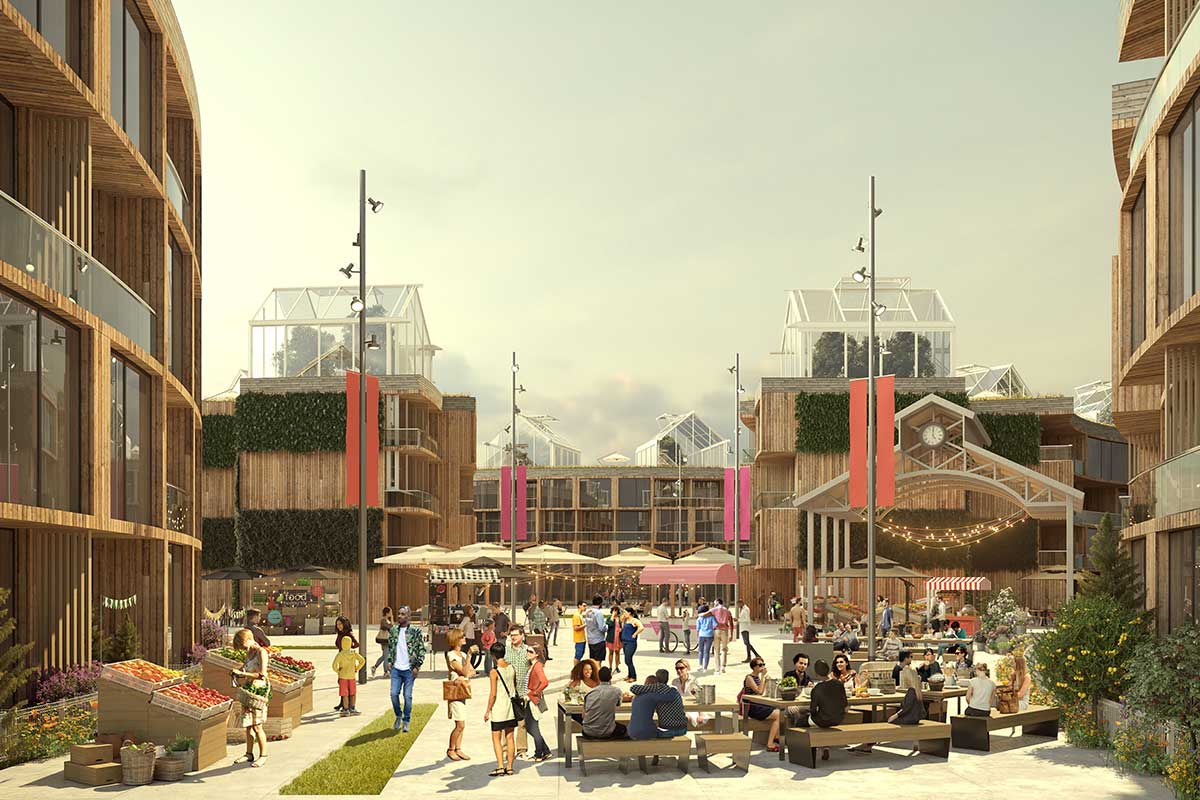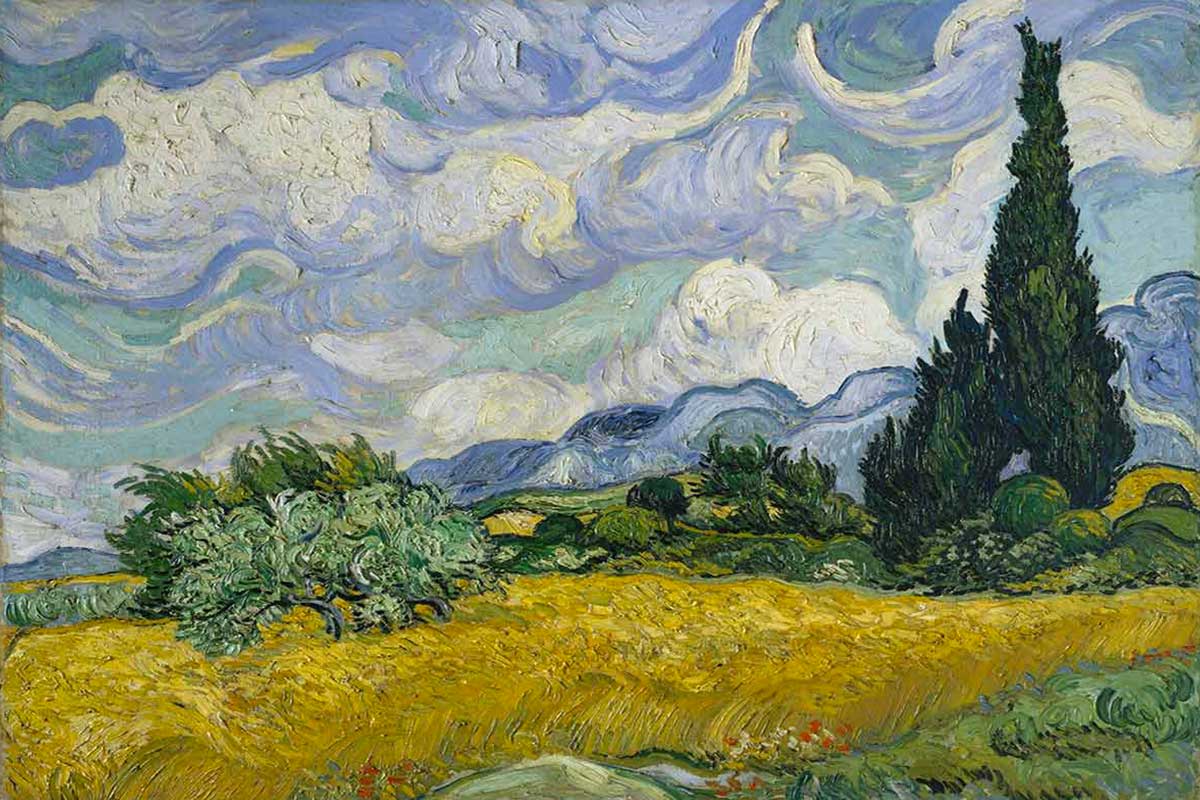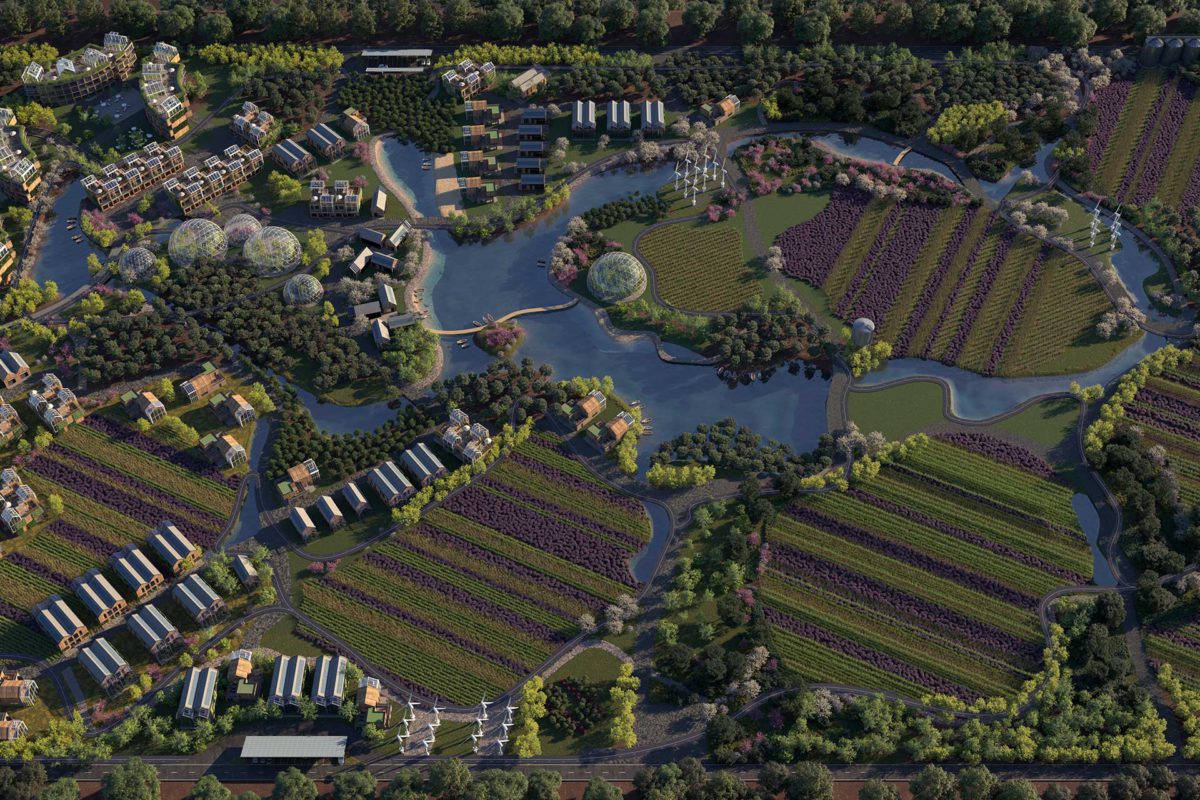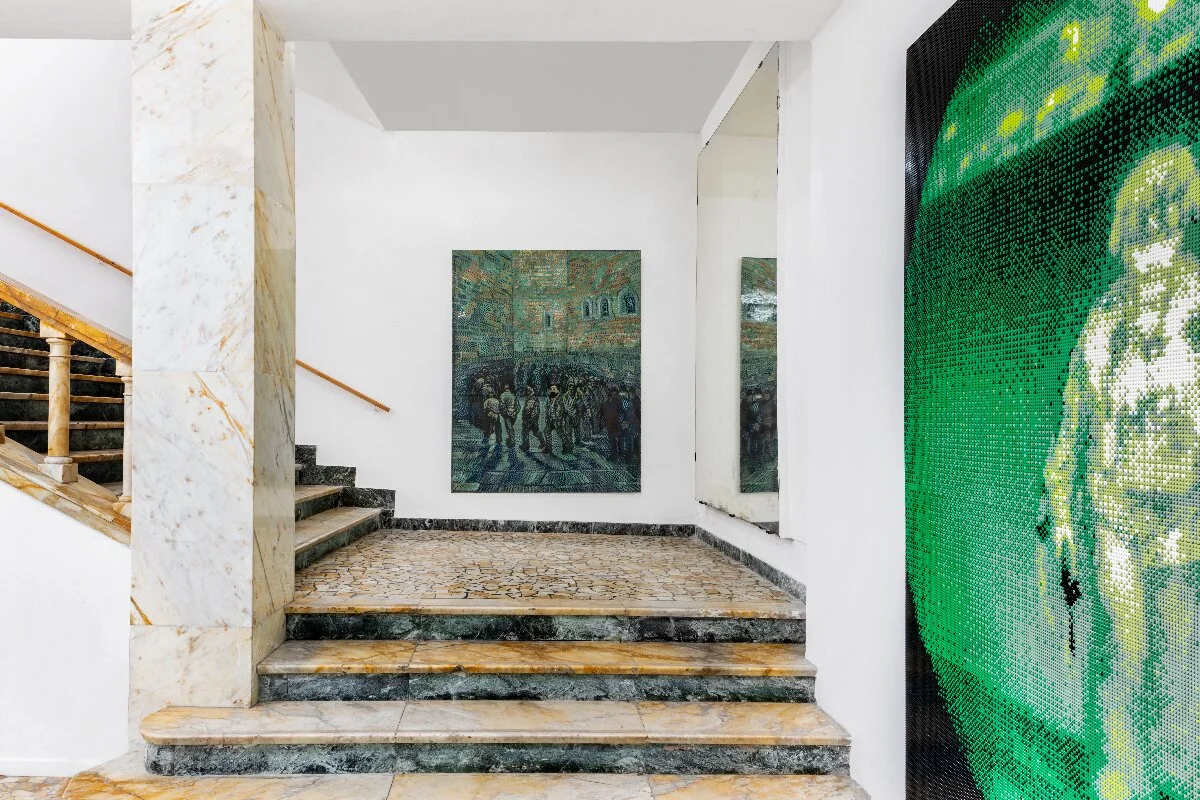ReGen is «developing a technology that you won’t even know it’s there» to build ecovillages based on the principle of circularity
Ecovillages in rural areas – ReGen Villages
The way cities are designed makes them interconnected and interdependent with the countryside: cities pull people in for the job opportunities and the infrastructure they offer. In turn, they rely on rural or suburban areas for the production of food and raw materials. If the urbanization trend of the past decades remains the same, by 2050 more than two-thirds of the world population will live in cities; but cities are also responsible for the sixty percent of greenhouse gas emissions.
ReGen Villages, a spin-off for profit of Stanford University, aims to create ecovillages in rural areas that are hi-tech, sustainable, self-sufficient and based on a circular economy. In its founder’s James Ehrlich’s words, ReGen Villages is an «industrialized approach to the modern eco-village movement using software to design, develop and manage bio-regenerative, resilient neighborhood infrastructure».
In the past ten years, research taken into consideration by ReGen have shown a trend towards moving back to rural areas, that had been left unpopulated by the industrial revolution, during which «urban manufacturing industries imposed a narrative that saw rural life as backwards or primitive, if you wanted a real life you had to adjust to the way of life promoted by the city».
Back to the countryside
Thanks to the enforcement of this logic, people were drawn from the rural to the urbanized areas, looking for a job and news perspectives. After the Fifties, cities were able to keep up with the amount of people moving in. After a while, the model proposed by the Big City way of living started to crumble: «for a short period of time urban areas managed to deliver on this promise of the so-called ‘better life’, but over the last forty-fifty years there has been a decline in terms of middle-class earning power, wellbeing and health and an overall failing on these promises».
Living in a society where «people are more stressed out than ever in cities, because they are required to have two or three jobs just to get through the month». During the past year, after the spread of Covid-19 and the consequent lockdowns, the city life started to show its weaknesses even more. With the possibility of working remotely while maintaining efficiency, living in urbanized centers did not seem so desirable any longer: «the pendulum that seemed to be unbreakable towards the urban areas has begun to swing towards the countryside instead, and right now in the urban areas, of all the major capitals of the world, anyone that could afford to leave has left or is leaving».

The solution for a greener society
This is the need that ReGen aims at addressing: providing communities who are seeking for an alternative to cities with a solution that aligns with the need for a greener society. A place where attention is paid to food production, construction, waste and water usage above all and «a steam valve from the stress of urban areas so that the rural areas could build back».
With people who used to live in cities for decades, the majority of the population would struggle adjusting to the rhythms and necessities of the countryside. «As a result of the massive urbanization process people have been distant from the rural areas that they have lost all their abilities to till the soil and be close to nature». The resilience and ability to learn and adapt that is inherent to the human mind is also key in the adjustment process.
«When we’ve done our research with ecovillages and intentional communities, we have found that when people come together and embrace the local organic farming and permaculture practice, they understand that there is less labor in this way of living than they thought».
Village OS – Operative System
This is where technology comes at hand. Among its many functions, Village OS, the Operative System created by ReGen, helps manage food production and the handling of the land. Village OS adapts and contributes to the development of the village at every step. First, it has a key role in the planning of virtual designing, what ReGen defines as a «regenerative village». It does so by using a generic kit of parts of circular building materials and components that is relevant to that environment, climate zone or country.
It then puts all of these together with the land grand information and provides with several hundreds of possible village development plans: «those are general plans that the key stakeholders then contribute to reducing them to choice of four or five». Secondly, Village OS reduces the time of engagement with local authorities and communities: «we use the software to reduce the rhetoric and include indigenous voices, local neighborhoods and communities so that everybody feels like they’re heard», explains Ehrlich. It also allows a quick assessment on whether a village can actually be built where planned, both in terms of local consensus and the permits needed to build, «instead of it taking three to five years to get a single development approved, we can do it in six to nine months».

ReGen villages communities
After the design and consensus phase, Village OS also keeps being used as the local server infrastructure, and «to run the village». It handles food, water, waste, connectivity to passive smart homes, external services of mobility, health care «it is the operative system: the Village OS». Lastly, it can connect to a global network of ReGen villages communities and learn and improve from climate-related data.
As you live in your ReGen community you are also providing data «that are relevant to helping people» that live in other connected villages. ReGen, being based in the EU, responds to the European Privacy Law, so data will be owned either by private members of the community, families or the community itself, and «anonymized and encrypted» before it is used and shared with the aim of improving other neighborhoods. ReGen is concerned with the infrastructure side of data, so it will look at the public space, leaving the privacy of what members do in their homes intact.
Technology is a mere accessory that can allow people to live in a natural way
It may look like a contradiction that, to live a life that is closer to nature, one has to rely on technology this much. The way ReGen sees it, technology is a mere accessory that, when used properly, can liberate people and allow them to live in a natural way, without interfering. In terms of the construction itself, Regen Villages will be made of whole units and modules made with circular building materials, «allowing to produce one third less waste and one fifth less construction time compared to a normal building».
All savings will go into making housing more affordable for families: «our goal is for at least the thirty-five percent to be social affordable housing and get to a place where we can bring this model to the global south». Everything is connected by a strong sense of community, going against the rhetoric of the city, that pushes people away to each other, into isolation. ReGen is now at the stage of being ready to disclose the first locations for its pilot communities to be built in.
ReGen Villages
Starting from a 2016 spin-off of Stanford University, it is an Holding based in the Netherlands whose purpose is to construct regenerative villages that are sustainable and circular. To do so, they use their own Operative System (Village OS), that allows them to automatically plan and design villages and later handle them in everything that’s needed. Now part of the EU Bauhaus, their mission is to accomplish all seventeen Sustainable Development Goals.



















